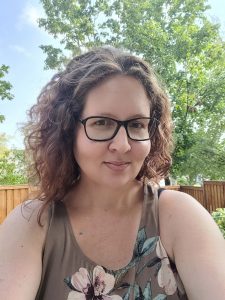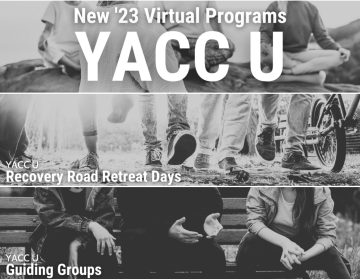 By Kirsten Efremov
By Kirsten Efremov
I have seen perceptions of the word “cancer” change since I was first diagnosed in 1998, but it is still a disease that is associated with advancing age. We don’t see a ton of representation from young adults affected by cancer in traditional media. One of the reasons why might be because sharing stories in general can make people feel overwhelmed, vulnerable, and afraid.
In order to tell your story, you have to be comfortable saying your story to yourself, and you have to be comfortable with the uncomfortable. Not everyone will like what you have to say, how you say, or why you say it. Not everyone will understand the context or circumstances in which your story takes place. Some people are very lucky to have never had to experience medical issues or need to be in the hospital for any length of time so they might see your story as complaining while others might see it as inspirational.
Someone commented recently around my story, saying “Why it she complaining? She should be happy she is alive,” and well, I am happy to be alive. This person didn’t have any context or know the circumstances. I also assume they have never known anyone — or anyone young — to have a cancer diagnosis to understand that just because you are cured doesn’t mean the journey is done.
Do you have any advice for crafting your narrative/shaping your speaking points before engaging in public storytelling?
When sharing your story, it is important to know your audience. There are some things you don’t share and some things that are important to share.
Example: When I share my cancer story with children, I choose not to indicate my relapse or secondary cancer as this can invoke fear and my intention is not for them to feel that.
It could also be important to not stereotype a particular profession. I am sure we have all had horrible health care practitioners, but also have had some amazing ones. However, speaking about what was done wrong and how it could be improved could greatly increase the awareness and people would see it less as a complaint. Remember not get lost in the details, though.
Example: Instead of saying all (insert profession here) are bad, preface with saying, “In my experience, I had a bad interaction with one specific provider. The situation wasn’t the best and it could have been improved by (insert suggestion).”
If you are doing a news article, be sure to understand and clarify what they are looking for from you (such as quotes, interviews, videos, or images), and take your time during the interview to make sure you are comfortable with what you say. Asking for a list of questions beforehand can help you prepare some thoughts.
What are your tips for ensuring the reporter quotes you appropriately?
When possible, try to develop a relationship with the reporter or publisher. When you don’t have the time or opportunity to develop a relationship, it will be important for you to let them know if you have questions or concerns before the interview, as well as your comfort level with vulnerability, why you are not comfortable discussing certain things, how edits or corrections could work, what their angle is, etc. That way, if an issue pops up after publication, they are more likely to be respectful and up for making necessary changes.
Additionally, ask if you can review the article before it is published to ensure an accurate representation of your words. Different publications have different standards, so this might not always be possible. If they publish it before you review and you notice there are errors, contact the author immediately to ask for corrections. However, it is not reasonable to tinker with a story forever so you should feel confident in what is published.
Take your time with your answers and ask to come back to a question if you are not ready to answer it. Sometimes, if there are mistakes, you have to make peace with it and try to work around it next time.
What are some reasons why you decided to share your story publicly?
It’s important for me to share my story so people know there is hope. In the pediatric world, I was often the older kid in the clinics, and in the adult world, I was usually the youngest in the clinic. I never really felt like I fit in. Even now as a survivor, with limited longterm effects, it sometimes feels like I don’t belong in the cancer world, but I also don’t belong in the healthy world. Sharing my story helps me come to terms with what I have been through, puts a spotlight on cancer in the young adult community, and challenges the misconception that being young equates to being healthy.
“Sharing my story helps me come to terms with what I have been through, puts a spotlight on cancer in the young adult community, and challenges the misconception that being young equates to being healthy.”
What has been the outcome of your media-based storytelling and advocacy?
I don’t know if my story has made an impact on people, but it has helped me reach a new audience. I have had the privilege of being involved in some Canada-wide advocacy and I hope to show that pediatrics and the AYA community needs more support when it comes to cancer including early diagnosis, better treatment, the need for psychosocial supports, and survival beyond just living.
Being involved with YACC allows me to see and hear other people’s stories and to try to speak on behalf of a population rather than just myself. I try to put the needs of the whole forward to show that we aren’t just like every other cancer patient and that we need more than just curative treatments.
Overall, in telling your story you have to have a bit of a thick skin, be ready for potential negative responses, and be comfortable saying the words I had cancer. Your story doesn’t have to be positive, inspirational, or reaffirming to someone’s ideas.
Be real and true to yourself, and stick to it. Don’t let someone try to change your narrative. Not all cancer journeys are rainbows and unicorns.








